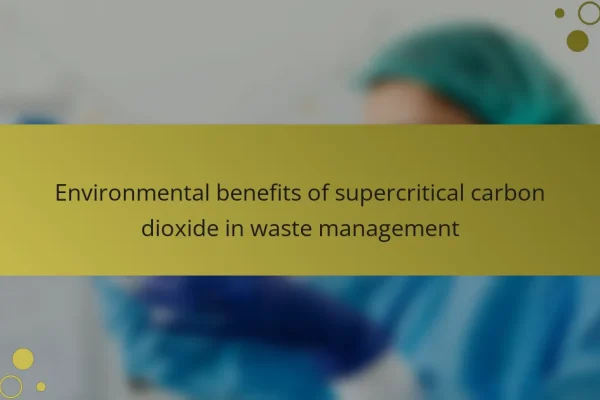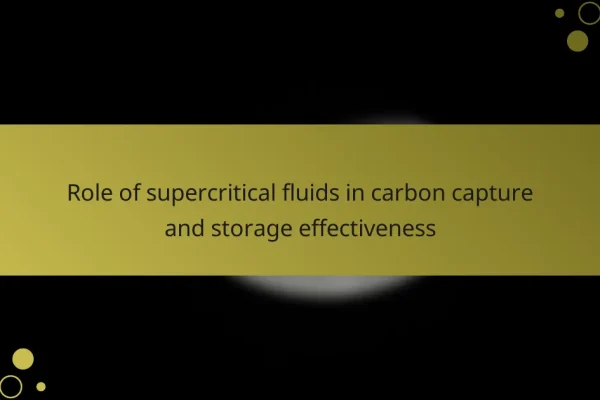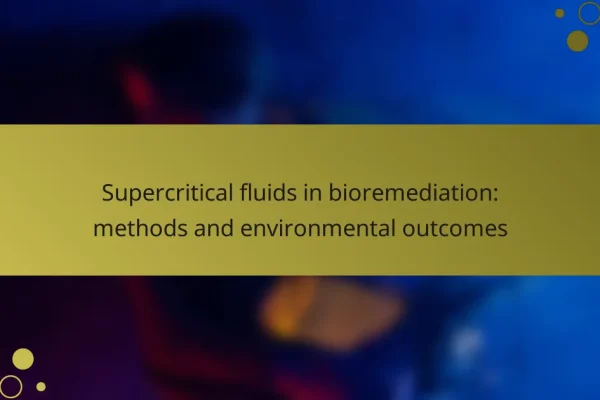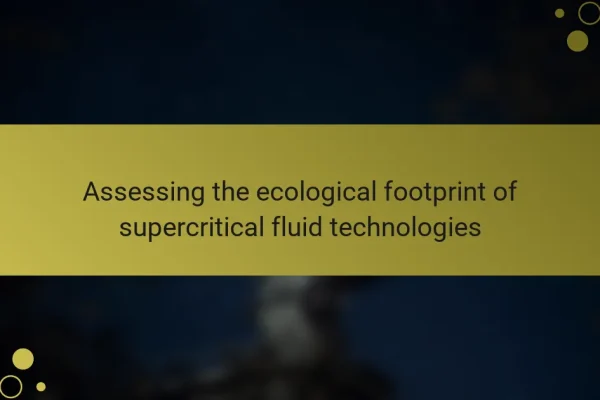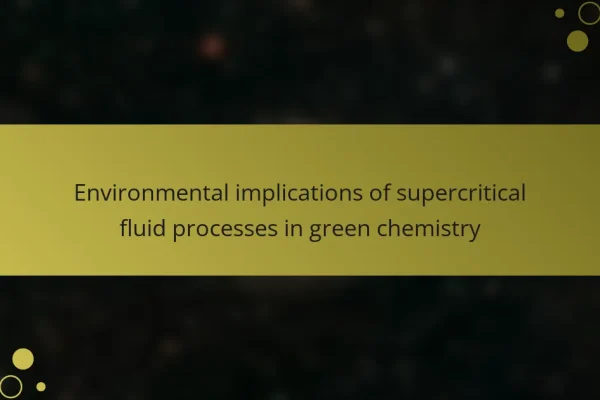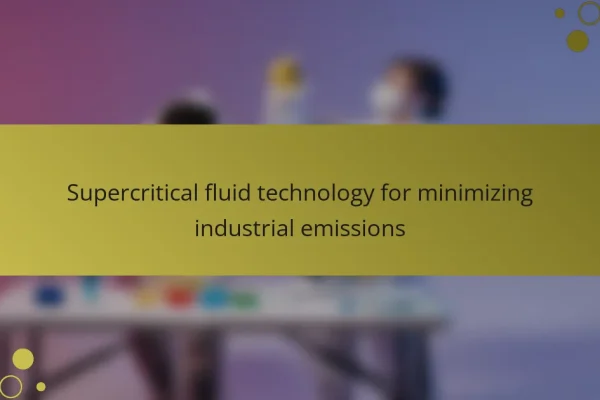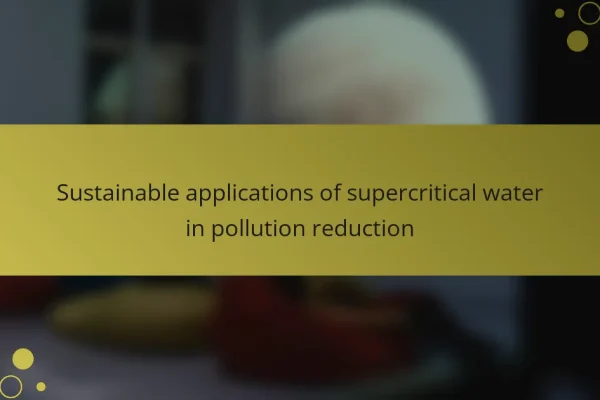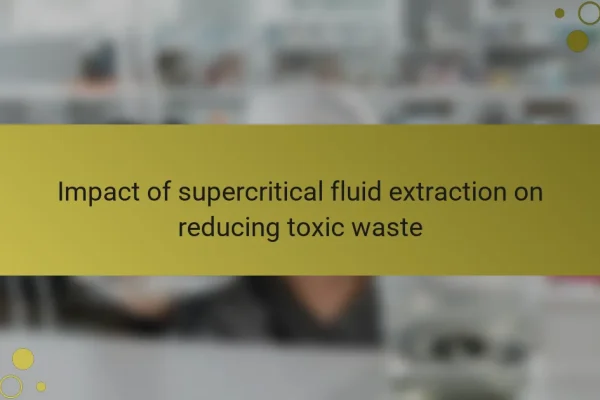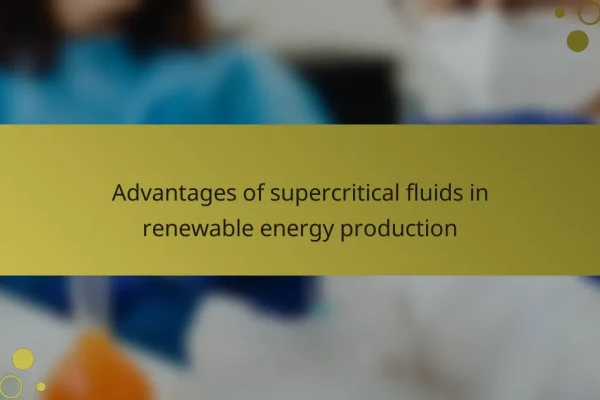
Advantages of supercritical fluids in renewable energy production
Supercritical fluids are substances that exist above their critical temperature and pressure, exhibiting properties of both gases and liquids. This article explores the advantages of supercritical fluids in renewable energy production, highlighting their unique solvent capabilities that enhance chemical reactions and extraction processes. Key benefits include improved extraction efficiency, increased biofuel yields by up to…

